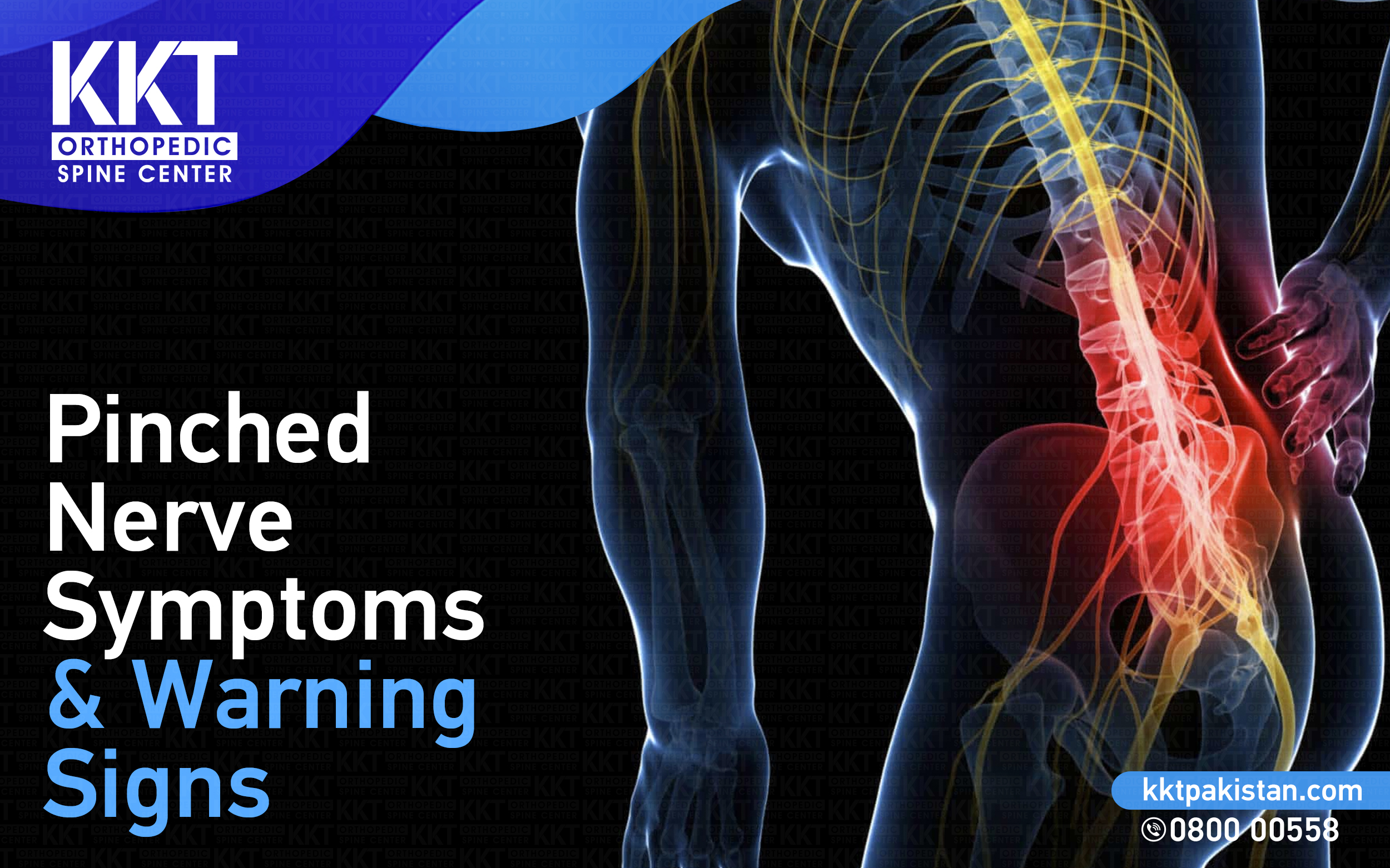A pinched nerve is a condition that occurs when excessive pressure is applied to the nerve. This condition is not common, however, when they do occur, pinched nerves cause pain and discomfort. The damage to the nerves can be mild to severe and can cause numbness, weakness, and tingling. Mostly, pinched nerves can occur in the cervical spine (cervical radiculopathy), upper middle back, (thoracic radiculopathy), and lower back (lumbar radiculopathy). There are several common symptoms of pinched nerves, this article includes a detailed overview of pinched nerve symptoms and warning signs.
Symptoms of Pinched Nerve:
Where do you feel pain from a pinched nerve? Following are some of the common signs and symptoms of pinched nerve:
- Pain in the affected area; neck or lower back
- Sharp, burning, and radiating pain (e.g., sciatica)
- Tingling, numbness, pins, and needles sensation.
- Muscle weakness in the affected area
8 Warning Signs for Pinched Nerve:
Following are some of the warning signs that people with pinched nerves might experience:
i. Pain or burning sensation radiating down the leg:
Sciatica is one of the symptoms of a pinched nerve in the lower back. This condition happens when the sciatic nerve root gets compressed at the point it exits the lower spine. And because the sciatic nerve extends from the lower back with branches going through the buttocks all the way down the leg, a number of symptoms are associated. If the sciatic nerve gets compressed, pain, burning sensation or dull ache can be felt along the pathway.
ii. Pain extending from the cervical spine to the arm:
Similar to sciatica, the pinched nerve can also occur in the cervical spine where the nerve gets compressed. This can cause pain to travel from the neck into the shoulders all the way down the arm. Irritation in the cervical nerve can also cause several symptoms along the nerve pathway. The symptoms of a pinched nerve in the neck and shoulders can be felt in the upper back, and arms, and even extend to the hands.
iii. Change in pain when you move position:
For many people suffering from the condition, it is not uncommon to feel a change (increase/decrease) in pain when changing position. For instance, in the case of sciatica, some people might feel pain reducing in certain positions, e.g., leaning forward in a sitting position. However, in some other positions, they might find the pain to be getting worse.
iv. Leg weakness:
A pinched nerve in the lower back causing sciatic pain can also lead to numbness and weakness in the leg as well.
Common causes of Pinched Nerve:
What triggers or causes pinched nerve?
As mentioned earlier, compression/pressure on nerves can lead to a pinched nerve. There are several causes of pinched nerves including some of the following:
- Repetitive motions
- Injury from a sport accident
- Rheumatoid arthritis
Several factors can also increase the risk of a pinched nerve, some of them include:
- Bone spurs
- RA
- Diabetes
- Obesity
- Overuse injuries
- Aging (it leads to wear and tear)
How to prevent Pinched Nerve?
Following are some of the preventive measures for pinched nerves:
- Maintain a proper posture and good positioning
- Maintain a healthy weight
- Limit repetitive activities
- Add strengthening and flexibility exercises to your exercise routine
When to seek medical attention?
KKT Orthopedic Spine Center offers a revolutionary non-surgical and non-invasive treatment option for back pain. Here, we also provide herniated disc treatment, sciatic pain treatment, and various other spine-related conditions.
For booking an appointment, click on the link below.

